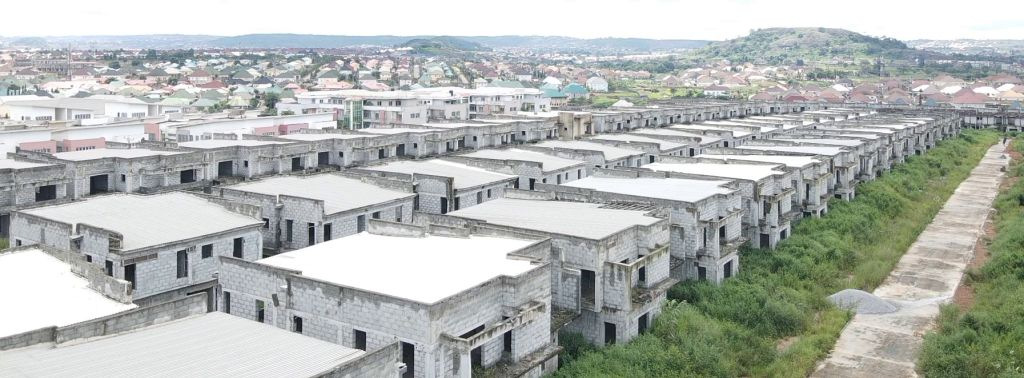The Economic and Financial Crimes Commission (EFCC) has achieved its largest single asset recovery since its establishment in 2003.
A property spanning 150,500 square metres, comprising 753 duplexes and other apartments in Lokogoma District, Abuja, has been permanently forfeited to the Nigerian government.
The decision was handed down by Justice Jude Onwuegbuzie on Monday, December 2, 2024.
The estate, located on Plot 109 Cadastral Zone C09, was linked to a former high-ranking government official and was seized under the EFCC’s mandate to ensure that illicitly acquired assets do not benefit corrupt individuals.
The EFCC cited Section 17 of the Advance Fee Fraud and Other Fraud-Related Offences Act 2006 and Section 44(2)(B) of the 1999 Constitution to support its case.

Justice Onwuegbuzie ruled in favour of the EFCC, stating that the respondent failed to demonstrate why the property, suspected to have been purchased with proceeds of crime, should not be forfeited.
“The property is hereby finally forfeited to the federal government,” the judge declared.
The process leading to this final forfeiture began with an interim order issued on November 1, 2024.
Investigations into the former official who constructed the estate are ongoing. The forfeiture aligns with the EFCC’s strategy to deprive individuals of assets acquired through criminal activities, ensuring justice and deterring financial crimes.

EFCC Chairman Ola Olukoyede has consistently emphasised the importance of asset recovery in combating corruption and economic crimes.
Speaking to the House of Representatives Committee on Anti-Corruption, he described asset tracing and recovery as critical tools in weakening suspects’ ability to resist prosecution.
“If you understand the intricacies involved in financial crimes investigation and prosecution you will discover that to recover one billion naira is war,” he stated.


